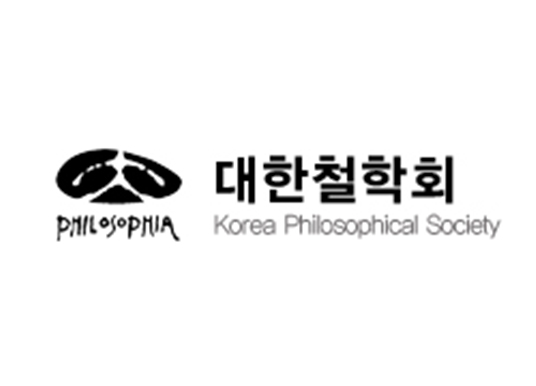확장된(extended) 성격과 내장된(embedded) 성격 가정에 대한 비판적 고찰
A Critique of the Embedded and Extended Character Hypotheses
한곽희
영남대학교 철학과
철학연구
2024, vol.170, pp. 353-379 (27 pages)
10.20293/jokps.2024.170.353
대한철학회
초록
본고에서 논자는 알패노와 스콜버그에 의해 제시된 내장된(embedded) 성격과 확장된 (extended) 성격 가정에 대해 비판적으로 검토하고 문제점을 지적한다. 이 가정은 행위자가 고정된 성격 보다는 상황적 요소에 따라 행동한다고 주장하는 상황주의의 도전에 대한 대응이라고 간주될 수 있다. 알패노와 스콜버그는 고정관념 위협 사례를 통해 내장된 성격 가정을 그리고 우정 사례를 통해 확장된 성격 가정을 제시하였다. 이 가정들은 확장된 마음 이론(The extended mind theory)과 내장된 인지 이론(The embedded cognition theory) 등과 같은 인지과학의 최근 연구 성과를 성격 개념에 응용한 것이라고 할 수 있다. 확장된 마음 이론에 따르면, 외부의 소품, 도구, 다른 체계 등이 행위자의 기능적 장치에 적절하게 통합될 때 그것들은 행위자의 인지를 담당하는 요소이다. 내장된 인지 이론에 따르면, 환경 속에 있는 소품이나 도구 등에 의존해서 인지하는 사람의 인지적 업무의 부담을 좀 줄일 수 있다. 논자는 확장된 성격에 대하여 두 가지 문제점을 제시하였다. 첫째, 통제할 수 없는 변화와 성격 평가의 문제이다. 한 행위자에게 타인이 성격의 한 요소가 되는 경우 타인의 변화는 자신이 조정할 수 있는 범위를 벗어나서 일어날 수 있다. 이렇게 자신의 통제를 벗어난 영역의 것을 성격의 요소라고 할 경우 성격을 칭찬할 때나 비난할 때 우리가 가지는 일반적인 가정을 유지할 수 없게 된다. 둘째, 확장된 성격 개념은 마마보이 같은 사람들의 정당화 혹은 핑계로 사용될 수 있다. 내장된 성격 개념에 반대하여 두 가지 반론을 제시하였다. 첫째, 우리의 성격을 결정짓는 것은 환경적 요소가 아닌 환경적 요소에 대응하는 우리의 태도일 수 있다. 어떤 사람들은 고정관념의 영향 아래에 있을 수 있으나 또 다른 사람들은 고정관념의 영향에서 벗어나는 방식으로 판단하고 그것에 기초해 행동할 수 있다. 고정관념이라는 환경적 요소에 어떻게 대응하느냐가 그 행위자의 성격을 결정짓는 요소일 수 있다. 둘째, 거대해지는 성격의 문제이다. 고정관념의 위협과 같은 것을 성격의 한 요소로 여길 경우 수많은 외부적 요소를 성격의 요소로 간주해야 할 수 있다. 이러한 경우에 행위자가 온전히 파악하지 못해 반성의 대상으로 삼기 힘든 부분이 성격의 요소로 통합되는 것일 수 있다. 이런 결과는 성격에 대해 우리가 일반적으로 가정하는 것과 조화를 이루기 힘들다.
In this paper, I critically examine the extended character and the embedded character hypotheses which can be regarded as a possible response to the situationist challenge to virtue ethics and argue that the two hypotheses are problematic. Alfano and Skorburg propose the extended character hypothesis through the case of friendship and the embedded character hypothesis through the case of stereotype threat. The two hypotheses draw on the extended mind theory and the embedded cognition which are theories in contemporary cognitive science. According to the extended mind theory, external things such as props, tools, and other people can constitute factors for cognition. According to the embedded cognition theory, an agent’s cognitive burden can be reduced by relying on external things such as props and tools. To argue against the extended character hypothesis, I make two points. First, I argue that an agent’s character cannot be fairly or appropriately evaluated when unexpected changes are included in her character. Second, I argue that the extended character can be misused as a justification by people who are so dependent on other people that they cannot make important decisions by themselves. I offer two arguments against the embedded character. First, I argue that our characters are formed not by external conditions but by our attitudes which are manifested as our responses. Second, I argue that if we embed ourselves with externalities or conditions and integrate them into our character, then the constituents of our character will be so inclusive that some of them can be something that we cannot understand. This result cannot be consistent with our general assumption of character.

